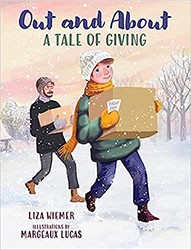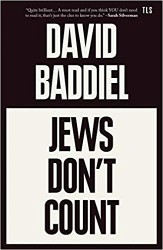When popular high school teacher Mr. Bartley assigns a controversial project asking his students to debate the pros and cons of Hitler’s Final Solution, with half the class defending the Nazi point of view, the town erupts in confusion and shock. Seniors Logan and Cade cannot accept Mr. Bartley’s contention that the debate is a legitimate educational experience despite his argument that it is important to examine all sides of an issue, any issue. The Holocaust, they feel, is not debatable; there simply aren’t two justifiable points of view to discuss when the murderous Nazi regime is the subject at hand.
College acceptances, academic awards, and educational, family, and social pressures make Logan and Cade hesitate to publicly protest this assignment, especially when they find out that the principal supports the teacher, bringing his considerable forces to bear in pressuring them to drop the issue. Once the teens have made their stand, however, previously unseen fissures in the community begin to widen and antisemitism gradually emerges. Neither Logan nor Cade personally identify as Jews, but they have a finely honed sense of what is right and what is wrong and they are absolutely sure that this assignment falls under the category of wrong. In spite of their previously high regard for their teacher, they know this assignment is inappropriate and they must object; their consciences demand it.
Family ties, close friendships, social acceptance, fear of personal fall-out, and a deep respect for learning periodically shake their resolve, but they persist in protesting this appalling assignment. Supportive of one another, the teens dig deeply into their souls and find the courage to proceed. Family secrets emerge under the pressure they face, making their fight feel even more significant and personal.
Based on an actual event, this gripping story will have a lasting impact, reaching and, perhaps, changing the reader. The characters and setting are vividly drawn, a touch of romance adds some spice, and the unfolding events feel both realistic and plausible. There is a palpable sense of discomfort running through the narrative, and it is clear that there are important lessons here yet the story is suspenseful rather than preachy or didactic.
Reminiscent of The Wave, this novel begs to be read and discussed in a group, and would be a perfect complement to a classroom unit on history, ethics, or social structure. This highly recommended book includes an introductory note by the author which discusses the real life incident on which the novel is based and gives important background and context.
Michal Hoschander Malen is the editor of Jewish Book Council’s young adult and children’s book reviews. A former librarian, she has lectured on topics relating to literacy, run book clubs, and loves to read aloud to her grandchildren.




